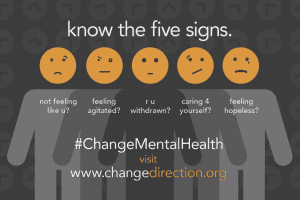
How to Make Our Summer Worthwhile
June 27, 2018 in Be Positive, Educate Yourself
 For many people, the word summer brings excitement, joy and anticipation. Everyone waits all year round for summer vacation and the long-awaited, well-deserved break from school. In my school, people start discussing their summer plans and options as early as January!
For many people, the word summer brings excitement, joy and anticipation. Everyone waits all year round for summer vacation and the long-awaited, well-deserved break from school. In my school, people start discussing their summer plans and options as early as January!
Although it can be exciting to hear the talk about summer plans, there are plenty of people who do not get as excited when they hear the subject brought up for the twentieth time. While most people are securing their summer plans—whether it be a summer job, a trip, or a summer camp with friends—there is most likely at least one person in your circle of friends and acquaintances who does not have a single plan yet. They may feel insecure about going somewhere new, or feel left out of someone’s camp group, or feel the pressure of needing to do something, and the uncertainty can create intense stress.
Based on personal experience as well as experience with many friends that are close to me, I think that it is extremely common for some people not to look forward to summer—especially those who are going through a mental illness or rough period. It can be tough for a person who experiences mental illness to have to hear about the cool, fun, extraordinary adventures that all their friends are having, while in the meantime they are too sad or anxious to even think about going away or being active during the summer.
If you can relate to any of these feelings, check out some tips I’ve put together about how I plan to make my summer worthwhile, one that I can feel confident about and look forward to. Let’s try some of these strategies together!
- Relax: Take a break from my work and really let myself enjoy school-free time by doing things I love. Some example: go to the park, get a massage, or read a good book series.
- Try something new: When we stretch ourselves, we discover the pleasure of developing new skills and tastes. Examples: explore the city or town, join a yoga or martial-arts studio, take an art class.
- Discover a passion: I’ve started to think about some of the causes I feel really strongly about, and then look into ways that I can be active in those activities.It can take time to figure out exactly what it is that we want to focus on, but after we find it and take action, we end up feeling accomplished and proud of our work, and we might discover a desire to share it with others, which helps our self-esteem and confidence in general. Some examples: if you are really passionate about saving animals, volunteer in an animal rescue. If you enjoy cooking, start a cooking club for young children to share your passion.
- Do something meaningful: This overlaps with the previous section. One way we make meaning in our lives is to focus on helping others. There are so many places we can volunteer: a soup kitchen, a food pantry, children with special needs, charities that need campaigners. These actions are super rewarding and give us a boost of energy and meaning.
- Take a trip: Get in the car and go somewhere new and exciting. We can bring along someone who we love and trust—maybe a parent, sibling or a friend, or even a pet!
- Spend time understanding yourself: When we take time to work on our mental health and to understand ourselves better, we always create more meaning in our lives. We can accomplish this through different types of therapies, support groups or supportive readings.
What are some of the things that you do during summer vacation? Have you ever sensed the pressures of summer vacation in your own life, or in the life of someone close to you? Which of the six ideas seems most important for someone who is going through a mental illness to spend their summer doing?


 Change can be one of the hardest challenges in a person’s life. It might be reassuring to know that everyone experiences some type of drastic change during their lifetime, and in most cases more than once.
Change can be one of the hardest challenges in a person’s life. It might be reassuring to know that everyone experiences some type of drastic change during their lifetime, and in most cases more than once.

Recent Comments